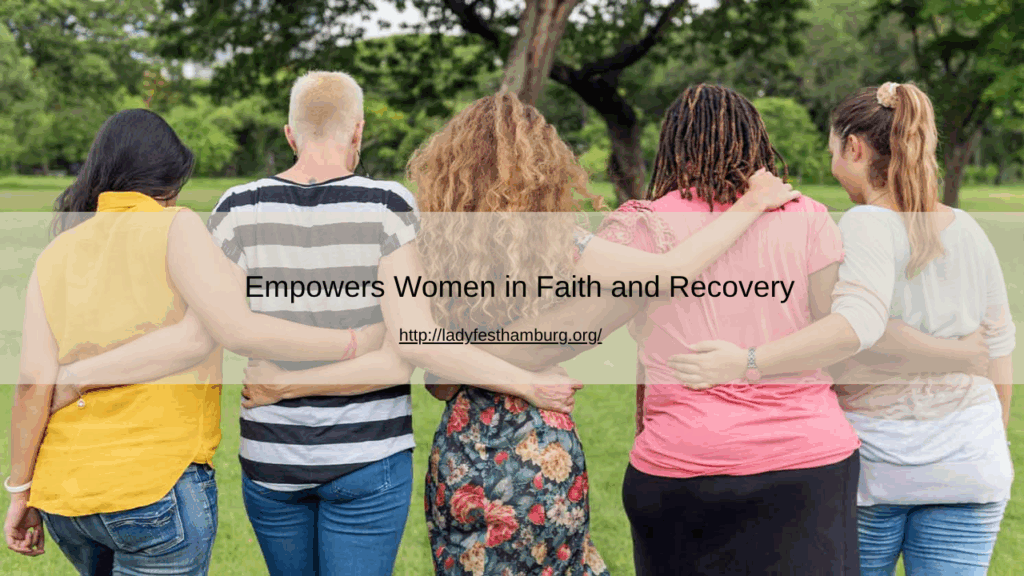Addiction can feel like a relentless storm, leaving many Christian women overwhelmed, isolated, and unsure of where to turn. Yet even in the darkest moments, faith can become an anchor that steadies the heart and restores hope. At LadyfestHamburg, we believe that recovery is possible when compassionate, professional treatment is combined with spiritual support and individualized care. Healing is not only about breaking free from substances. It is about rediscovering purpose, rebuilding trust in yourself, and finding God’s presence even in the midst of struggle.
For Christian women, faith often plays a powerful role in the recovery process. When paired with evidence based addiction treatment and mental health care, spiritual strength can support lasting change and emotional resilience.
Understanding Addiction Through a Faith Based Lens
Addiction affects the body, mind, and spirit. Many women entering recovery carry deep feelings of shame, guilt, or spiritual confusion. Some feel disconnected from their faith, while others question why they are struggling at all. These emotions are common and valid, and they deserve compassionate care rather than judgment.
A faith based approach to addiction recovery recognizes that spiritual wounds often exist alongside physical dependence and mental health challenges. At LadyfestHamburg, treatment honors the whole person. This means addressing substance use, emotional health, and spiritual well being together in a supportive and respectful environment.
Letting Go of Shame and Reclaiming Identity
One of the most important steps in recovery is releasing shame. Addiction is not a moral failure. It is a complex condition that requires professional support and understanding. Christian women often find healing when they reconnect with the truth that they are worthy of care, forgiveness, and renewal.
Through counseling, group support, and faith centered guidance, women can begin to rebuild their sense of identity. This process allows space for grace, self compassion, and personal growth.
The Role of Mental Health Treatment in Recovery
Many women facing addiction also struggle with anxiety, depression, trauma, or unresolved grief. Ignoring these challenges can make recovery more difficult. Comprehensive mental health treatment is essential for long term healing.
LadyfestHamburg offers integrated mental health services within both inpatient and outpatient care. Therapy helps women understand the root causes of substance use and develop healthier coping strategies. When mental health care is combined with spiritual support, women often experience deeper emotional stability and confidence in their recovery journey.
Inpatient and Outpatient Care Options
Recovery looks different for every woman. Some benefit from the structure and support of inpatient treatment, while others thrive in outpatient programs that allow them to balance daily responsibilities. Individualized care plans ensure that each woman receives the level of support that fits her needs, goals, and life circumstances.
Holistic Healing That Supports Body, Mind, and Spirit
Holistic addiction recovery goes beyond symptom management. It focuses on overall wellness and long term resilience. Faith based practices such as prayer, reflection, and spiritual counseling can help women process difficult emotions and strengthen inner peace.
In addition to spiritual care, holistic treatment may include wellness education, stress management techniques, and life skills development. These tools empower women to navigate challenges with clarity and confidence, both during treatment and after.
Building Resilience Through Faith and Community
Recovery is not meant to be faced alone. Supportive community plays a vital role in healing. Faith centered group sessions and peer support help women feel understood and connected. Shared experiences create encouragement and accountability, reminding each person that growth is possible.
Faith also nurtures resilience. Trusting in God during recovery does not remove challenges, but it can provide strength to face them with courage and hope.
Rebuilding Hope and Looking Forward
Overcoming addiction is a powerful act of faith and determination. Christian women who commit to recovery often discover renewed purpose, healthier relationships, and a deeper connection to their spiritual values. Healing takes time, patience, and support, but every step forward matters.
At LadyfestHamburg, we walk alongside women as they rebuild their lives through compassionate addiction recovery services, mental health treatment, and faith based care. Our approach is client centered, respectful, and rooted in understanding the unique journey of each individual.
Take the Next Step Toward Healing
If you are a Christian woman struggling with addiction or mental health challenges, help is available. You do not have to face the storm alone. Reaching out for support is a courageous first step toward hope, healing, and lasting recovery. Contact LadyfestHamburg today to learn how our holistic, faith based programs can support you in finding strength, purpose, and renewal.





